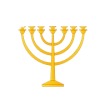1. In what terms do we have the nation of Russia mentioned in divine prophecy?
“Son of man, set thy face against Gog, the land of Magog, the chief prince of Meshech and Tubal, and prophesy against him,” Ezekiel 38:2.
2. Where did the names of Magog, Meshech and Tubal originate?
“Now these are the generations of the sons of Noah, Shem, Ham, and Japheth, and unto them were sons born after the flood. The sons of Japheth, Gomer and Magog, and Madai, and Javan, and Tubal, and Meshech and Tiras,” Genesis 10:1, 2.
NOTE: If the student will turn to the map showing the divisions of the world after the flood, in the back of their Bible, they can readily see that Magog, Meshech, and Tubal, the grandsons of Noah migrated northward from Arabia and settled in the southern part of the territory now known as Russia. The introduction of the 38th chapter of Ezekiel given above is as follows, “Son of man, set thy face against Gog, the land of Magog,” In the late translations of our Bible the word “Rosh” is used instead of Gog, from which the word Russia is derived.
3. What is said in the scriptures about this land of Russia?
“Behold I am against thee, O Gog, the land of Magog, and I will turn thee back, and put hooks in thy jaws,” Ezekiel 38:2, 3, 4.
NOTE: The people of the present generation have been eye witnesses to the fulfillment of this divine prediction, and they have seen, during the late war, the turning back of this mighty power of the north. Russia, long known as the “bear of the north,” has been turned back, and hooks have been put in her jaws. She has been reduced from one of the most powerful monarchial governments on earth to no government at all with only anarchy left.
4. What does God say further of Russia, and has she a future part to play in the last great drama of earth’s history?
“I will bring thee forth, and all thine army, horses and . . . a great company . . . Persia, Ethiopia, and Libya with them . . . Gomer, and all his bands; the house of Togarmah of the north quarters, and all his bands, and many people with thee . . . . After many days thou shalt be visited; in the latter years thou shalt come into the land that is brought back from the sword, and is gathered out of many people, against the mountains of Israel.
Thou shalt ascend and come like a storm, thou shalt be like a cloud to cover the land, thou and all thy bands and many people with thee . . . . And thou shalt say, I will go up to the land of unwalled villages. I will go to them that are at rest, that dwell safely, all of them dwelling without walls, and having neither bars nor gates,” Ezekiel 38:4-11.
NOTE: The above prophecy refers to the gathering of the armies for the last great battle, during which Christ comes, as is seen by reading the balance of this chapter. That this has no reference to the battle of Gog and Magog at the end of the thousand years spoken of in Revelation 20th chapter is evident from the fact that these armies come against unwalled villages, which have neither bars nor gates, while the battle at the end of the thousand years is when the wicked dead are resurrected and make an effort to take the holy city. The wicked hosts are spoken of in the Revelation of Jesus as Gog and Magog, which is correct. The wicked armies known as Gog and Magog that take so prominent a part in the battle of Armageddon, which comes at the commencement of the thousand years, only suffer the first death, and will constitute the armies marshalled together by Satan at the close of this period, after they are resurrected before the second death.
5. For more evidence that the power mentioned in this chapter refers to Russia, from what direction does God say these armies are to come when they march against His people who are gathered in the land of Israel, during which time He will rain fire and brimstone upon them and destroy them?
“And thou shalt come from thy place out of the north parts, thou and many people with thee,” verse 15.
NOTE: Russia occupies the territory lying to the north of Jerusalem, so it is again made clear as to the identity of Gog.
6. At what time does verse 16 say this will be?
“It shall be in the latter days.”
7. What other strong evidence contained in this chapter shows that this battle referred to is the one that takes place at the commencement of the one thousand year reign of Christ, and not at its close?
“Thus will I magnify Myself and sanctify myself, and I will be known in the eyes of many nations, and they shall know that I am the Lord,” verse 23.
NOTE: By this demonstration of God’s power in the raining of fire and brimstone from heaven and shaking the earth with the mightiest earthquake known in history, God says in this way He will be magnified and sanctified in the eyes of many nations. This could not be if the events connected thereto were not at the time of the coming of Christ.
